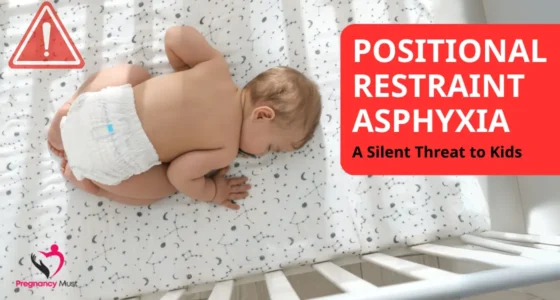How did you learn to take care of your first baby — that’s the question I once typed into every search bar when I first became a mom. The sleepless nights, the gentle cries, the tiny fingers — everything felt magical yet terrifying. Becoming a parent for the first time is one of the most rewarding and challenging experiences of life. In this guide, I’ll share my personal journey from a nervous first-time mom to a confident caregiver, along with expert advice and newborn education tips that helped me along the way.
Table of Contents
- The Emotional Start of Motherhood
- Why Every Parent Should Take a Newborn Care Class
- Free Online Newborn Care Classes — Are They Worth It?
- The Infant First Month — What I Learned the Hard Way
- Newborn to 6 Months — Watching Growth Unfold
- Teaching Newborns and Infants Through Play
- Six Months Old — A Turning Point
- Newborn Safety and Self-Care for Moms
- How to Take Care of an Infant — Expert Tips I Still Use
- Six Months — What We’ve Learned Together
- FAQ: Learning to Take Care of Your First Baby
- Final Thoughts —How Did You Learn to Take Care of Your First Baby?
The Emotional Start of Motherhood
When I first brought my baby home, it felt like holding a piece of my heart outside my body. Despite the joy, I was overwhelmed—how do I feed him right? What if he cries too long? Is this normal? I soon realised caring for a newborn wasn’t just instinct — it required learning, patience, and guidance. That’s when I explored free online newborn care classes and resources on newborn education. These classes taught me how to teach a newborn, manage newborn safety, and boosted my confidence in every aspect of baby care.
Why Every Parent Should Take a Newborn Care Class
No one is born knowing how to be a parent. Even if you’ve babysat or helped raise siblings, caring for your own infant is entirely different. A newborn care class is one of the best tools for first-time parents.
What You Learn in a Newborn Care Course
Most newborn care courses or infant care classes include practical lessons on:
- Bathing, diapering, and feeding your baby
- Understanding sleep cycles
- Recognising your baby’s hunger and comfort cues
- Infant CPR and newborn safety essentials
- Emotional care for both mom and baby
When I took my first care class, I realised that learning about developmental milestones made parenting less stressful and more enjoyable.
Free Online Newborn Care Classes — Are They Worth It?
Yes, absolutely. I started with a few free online newborn care classes, and they were surprisingly comprehensive. Even though nothing can replace hands on experience, these classes provided me with structure and confidence when I was having self-doubts during late-night feedings.
Benefits of Free Newborn Education Resources
- Accessible 24/7 for busy parents
- Covers the basics of newborn care first month through six months old
- Often created by pediatric nurses and certified instructors
- Great for couples who want to prepare together
If you’re a new parent, I’d highly recommend checking out online platforms that offer newborn care courses or even local hospitals that run newborn safety classes.
The Infant First Month — What I Learned the Hard Way
The infant’s first month is a rollercoaster. You’ll learn a lot about feeding schedules, diaper changes, and most importantly — patience.
During those early weeks, I discovered:
- Babies need to be fed every 2–3 hours, even at night.
- Burping after every feeding reduces colic.
- Skin-to-skin contact helps with bonding and emotional regulation.
- Sleep comes in short bursts — for both baby and you!
Your main focus in this stage should be comfort, feeding, and rest. A newborn class or a newborn course will help you understand what’s normal and what might need a paediatrician’s attention.
Newborn to 6 Months — Watching Growth Unfold
Time flies. From the newborn to the 6-month stage, your baby grows rapidly. This period is full of learning, laughter, and tiny milestones.
At three months, your baby begins smiling responsively. By six months, many can roll over and even sit with support. This is also when teething might begin, and sleep schedules slowly start to improve.
I remember writing in my journal at six months, “What we’ve learned is more than I could have imagined.”
Teaching Newborns and Infants Through Play
Don’t worry — teaching newborns doesn’t mean formal lessons. It’s about talking, singing, reading, and playing.
Simple games like peek-a-boo help develop trust, attention, and emotional bonding.
I used sensory toys, colorful rattles, and gentle music to stimulate my baby’s brain. Every giggle was proof that newborn education starts at home — long before daycare or preschool.
Six Months Old — A Turning Point
Reaching six months old is like crossing from newborn days into babyhood. It’s a time of pride, relief, and joy — you’ve made it through the hardest part! By now, you’ve learned not only how to take care of an infant but also how to care for yourself as a parent. Those early doubts begin to fade as your confidence grows, and you start to truly enjoy the moments instead of worrying through them.
What Happens at Six Months
Around this stage, many babies sit unassisted, roll both ways, and grab toys with purpose. They start recognising faces and responding to their names, often with heart-melting smiles. Under your paediatrician’s guidance, you can usually begin introducing solid foods — a fun and messy milestone! Babies also become more playful and curious, exploring their world through touch and sound. Every day feels like a small discovery for both of you.
Reflecting on the Journey
The six-month mark invites reflection. The sleepless nights, endless diaper changes, and early worries now give way to laughter, connection, and rhythm. Whether you say six months, 6-months, or six-month-old, this milestone deserves celebration — not just for your baby’s growth, but for how much you’ve grown as a parent.
Newborn Safety and Self-Care for Moms
One thing I didn’t realise early on was that newborn safety includes taking care of yourself. A tired, overwhelmed mom can’t give her best care.
Join a newborn safety class or learn CPR basics online — it could make all the difference. I also created a “kit care” system — a basket with diapers, wipes, burp cloths, and essentials in every room. That “kit care with the baby” hack saved me many panicked moments.
How to Take Care of an Infant — Expert Tips I Still Use
Here are a few expert-approved lessons that every parent should know:
1. Create a Routine: Babies Thrive on Predictability
Babies feel calmer when life follows a familiar rhythm. Establishing a simple routine for feeding, naps, and playtime helps your little one know what to expect. It also improves sleep and reduces fussiness. I found that when my baby had a predictable flow — morning cuddles, nap, tummy time — the days ran smoothly. Routines give structure, confidence, and comfort for both baby and parents.
2. Watch for Cues: Learn Your Baby’s Unique Signals
Each baby has a unique way of interacting with others. Watch for subtle cues like yawning when tired, rooting or sucking when hungry, or turning away when overstimulated. You can promote emotional stability and trust by recognizing these symptoms and acting before the tears start. After I learned to read my baby’s cues, our days became more peaceful. Early response strengthens the bond and gives your baby a sense of security and understanding.
3. Keep the Environment Safe: Smart Newborn Safety Tips
Safety is essential for healthy growth. Always place your baby on their back to sleep, use a firm mattress, and avoid soft bedding or loose blankets. Keep the crib clutter-free and ensure the room is comfortable — not too warm or cold. After taking a newborn safety class, I realized how small changes can prevent big risks. A safe sleep space helps babies rest better and keeps parents at ease.
4. Track Growth: Celebrate Every Milestone
Healthy development is ensured by keeping an eye on your baby’s growth. Utilize the growth chart provided by your pediatrician to monitor head size, weight, and height. Around six months, mark significant life events like smiling, rolling over, or sitting up. Those first few months were unforgettable because I kept a baby journal to record each “first.” Keep in mind that each child develops differently and that love, care, and consistency are the most important factors. Honor advancement rather than comparison.
5. Stay Connected: Build Your Support Circle
Parenting is easier with support. Connect with family, friends, or other new parents through free online newborn care classes or local groups. Reminding yourself you’re not alone and reducing stress are two benefits of sharing experiences. Talking to mothers who shared my struggles gave me comfort. Whether online or in person, community brings encouragement, advice, and laughter — all vital for your well-being and your baby’s happiness.
Six Months — What We’ve Learned Together
Looking back at the past six months, I’m amazed at how much both my baby and I have grown. The journey has been full of love, patience, and discovery—from the first anxious nights to feeling secure in our everyday routines. Every obstacle taught me something new, and each accomplishment made me realize how strong and capable we are together.
Lessons for Every New Mom
Motherhood isn’t about perfection — it’s about progress. Here are the lessons that helped me most in these first six months:
Don’t Compare Yourself to Others
Both parents and babies grow at different rates. It’s simple to feel insecure when you observe others accomplishing goals sooner or in a different way, but keep in mind that every journey is different. The most important thing is that your baby feels cared for, safe, and loved. Life became much more tranquil after I discovered how to trust our rhythm and quit comparing. You’re doing better than you realize, so concentrate on your progress rather than perfection.
Trust Your Instincts
No one knows your baby the way you do. While expert advice and newborn care courses are helpful, your instincts are your most reliable guide. Before realizing that my instincts were usually right, whether it was detecting hunger or determining when my infant needed more cuddles, I used to second-guess every choice. Have faith in yourself. Experience boosts confidence, and your baby senses that comfort as well.
Keep Learning
Parenthood is a continuous journey of discovery. Stay curious by taking newborn care classes, reading trusted parenting books, and learning from reliable sources. Every bit of new information you learn gives you more self-assurance and enables you to face obstacles head-on. I learned things that made daily care easier, even from brief online courses or conversations with pediatricians. The greatest gift you can give to yourself and your child is to never stop learning.
Enjoy Every Moment
Diaper changes and restless nights won’t last forever. Your baby will be crawling, laughing, and calling your name before you know it. The newborn stage is short. I constantly remind myself to take pictures, slow down, and enjoy every hug and laugh. The months really go by quickly, even though the days may seem long. The essence of motherhood is to cherish each moment.
A Journey Worth Celebrating
Although six months might not seem like much, it’s a season of love, strength, and growth. You’ve grown, adjusted, and formed a connection that will help you get through all the challenges ahead.
FAQ: Learning to Take Care of Your First Baby
Q1. What is the best way to learn how to take care of a newborn?
The best approach combines experience and education. Attend newborn care courses, read pediatric-approved resources, and trust your instincts.
Q2. Are free online newborn care classes effective?
Yes. Many are developed by certified baby care experts and cover the basics — feeding, sleeping, and safety.
Q3. How can I teach my newborn?
You can start by talking, singing, and engaging through sensory play. Early newborn education builds emotional and cognitive skills.
Q4. What should I expect in the infant’s first month?
Frequent feeding, irregular sleep, and lots of bonding time. Every baby is unique, but patience and care go a long way.
Q5. What milestones should a six-month-old reach?
At six months old, most babies can roll, sit with support, recognise faces, and begin exploring solid foods.
Final Thoughts —How Did You Learn to Take Care of Your First Baby?
Learning how to take care of your first baby is a lifelong lesson that evolves as your little one grows. The first six months are a foundation — filled with sleepless nights, precious smiles, and countless “firsts.”
Whether through newborn education, free online newborn care classes, or your own experience, remember: every parent learns at their own pace.
Explore more on Pregnancy Must –








